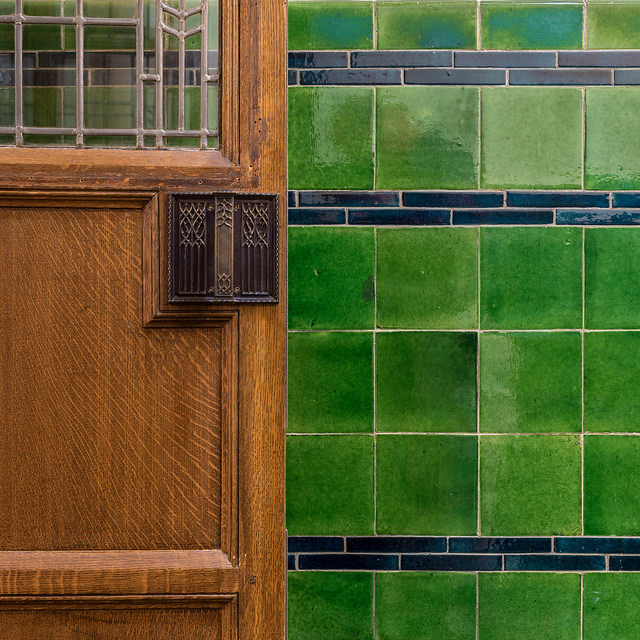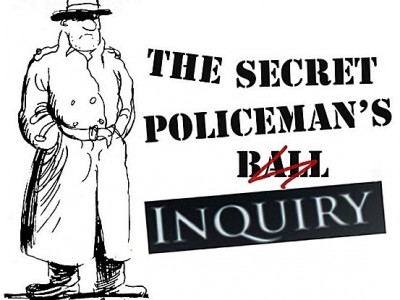Weekly Notes: legal news from ICLR — 20 February 2017
This week’s roundup of legal news and commentary features several items about the judiciary and two presidents, good and bad. There’s an interview with one of the ultimate (perhaps even supreme) guardians of the rule of law, and a call by another retired judge for the American president’s “Trumpeachment”. But we’re taking a break from
This week’s roundup of legal news and commentary features several items about the judiciary and two presidents, good and bad. There’s an interview with one of the ultimate (perhaps even supreme) guardians of the rule of law, and a call by another retired judge for the American president’s “Trumpeachment”. But we’re taking a break from Brexit this week, so you can come out from behind the sofa.

Judiciary
On air
Anticipating his retirement later this year, on Thursday morning Lord Neuberger of Abbotsbury PSC gave a rare (but just about Kilmuir-compliant) interview to BBC Radio 4’s Today programme (at 2hr 10min) about his role and about the process of his replacement. Inevitably, much of the conversation concerned the recent attacks on the judiciary. Having noted that “undermining the judiciary for no good reason is not good for the rule of law”, he was asked whether politicians had responded adequately to that, particularly after the initial High Court judgment in the article 50 (Miller) case. He said:
“They [politicians] could have acted more quickly and more clearly than they did. But as I say, it’s easy to be critical after the event. They were faced with an unexpected situation, from which, like all sensible people, they learned.”
He said their reaction had been much better after the Supreme Court judgment on the appeal in that case. But he went on to explain why the issue was so important:
“If we undermine the judiciary we are undermining the rule of law because in the end the judges are the ultimate guardians of the rule of law, and the rule of law, together with democracy, is one of the two pillars on which our society is based. And therefore if, without good reason, the media or anyone else undermines the judiciary, that risks undermining our society. Of course, the press and the media generally have a positive duty to keep an eye on things — that’s one of the reasons why we have freedom of expression, particularly for the media — but I think with that right, with that power, does come a degree of responsibility.”
He went on to discuss the question of recruitment of his and other replacement justices to the Supreme Court, a process which some commentators have suggested should follow the US model and adopt a process of parliamentary quizzing of candidates.
“It’s not for me to comment on what’s right for the United States, but I do not find the system of choosing judges there and having them cross-examined by parliamentary committees on a fairly party-political basis a particularly attractive idea for this country. And I do wonder what you would ask judges or potential judges when they are being interviewed. […] if you start making judges say what their political views are, I think that would be retrograde rather than the opposite. In practice I do not think that our political views influence our decisions in any way, and I think intruding into somebody’s political views or religious views or social views is not actually going to help. And it will end up, I fear, politicising the judiciary in a way which mercifully hasn’t happened at all in this country.”
Supreme Court selection process launched
See also:
- Clive Coleman, BBC legal correspondent: Attacks on judges undermine law – Supreme Court president
- Hugh Muir in the Guardian: Lord Neuberger is right. We have to take on the mob.
But his [Neuberger’s] intervention highlighted a wider concern. The Brexit right is in its pomp. It won its referendum, it has its prime minister, it has plum seats in cabinet, it is on the road to triggering article 50. But like a crime syndicate that has annexed a new market and now worries about territorial encroachment, its tendency has been to focus with increasingly deranged ferocity on any sign of dissent.

On the page
The Modern Judge by Sir Mark Hedley
Based on a series of public lectures given in 2015, this little gem of a book on the modern art of judging should be required reading for anyone seriously interested in law and the judicial system. As a former High Court and before that circuit judge, Sir Mark Hedley brings to his reflections a vast experience of criminal, civil and especially family cases. His observations on his role as a judge are timely and illuminating.
Reviewed by Paul Magrath on this blog.
Legal profession
Uproar over GFS
Earlier this month the Ministry of Justice launched a consultation on its Litigators’ Graduated Fees Scheme and Court Appointees.
Instead of cutting legal aid fees across the board by a further 8.75% as had been planned for last year but then suspended for 12 months, the MoJ has proposed achieving similar savings through efficiency measures including recalibrating the Graduated Fees Scheme for payments to criminal defence lawyers. The link between payments and the volume of evidence served is to be changed (but not removed entirely) and the fees payable to court appointed representatives will be capped at legal aid rates.
The proposals have provoked threats of yet another round of protests by practitioners, of the type we saw when Chris Grayling occupied the post now filled by Liz Truss.
Zoe Gascoyne, chair of the Criminal Law Solicitors’ Association, told the Law Society Gazette: ‘Solicitors are angered to find that they are being presented with a consultation which invites practitioners to opt for one cut over another only seven weeks before the new contracts.
Inquiries
Spycops inquiry chair’s illness
Sir Christopher Pitchford, chair of the Undercover Policing Inquiry, has announced that he will sadly be unlikely to complete his work on the inquiry owing to a diagnosis, late last year, of motor neurone disease. Transitional arrangements are being put in place to ensure the work of the inquiry can continue after he steps down.
The purpose of the inquiry, established in 2015 under the Inquiries Act 2005, has been to investigate and report on undercover police operations conducted by English and Welsh police forces in England and Wales since 1968.
See: terms of reference
Dates and Deadlines
Gray’s Inn Post Pupillage Maintenance Award 2016/17
Applications are open for the Post Pupillage Maintenance Award; a scholarship award of up to £7,500, for members who have successfully completed pupillage within last 5 years and whose practice involves acting for claimants in public law cases, and are affected by legal aid cuts. Deadline for applications is Friday 10 March 2017.
Justice Online: Just as Good?
Talk by Joshua Rozenberg on the fast moving development of the “computerised courts of the future”.
Gresham College, Wednesday 22 February at 6pm. No booking. Arrive early, first come first served.
The Process: BBC Radio 3
Radio adaptation of Kafka’s The Trial. Last broadcast Sunday 19 Feb but available on iPlayer for another 29 days. Review to follow (when I have caught up).
Law (and injustice) from around the world
America
Judge calls for Trumpeachment
A retired Ohio Court of Appeals judge, Mark P Painter, who has consistently supported the Republican party, has written a column in Cincinnati.com calling for President Trump to be impeached. Painter has offered to help his congressman representative Steve Chabot draft the articles for impeachment, after citing the “dozens of dazzlingly illegal things [Donald] Trump has already done”.
“We are still trying to digest one breathtaking assault on America when another is signed, issued, or Tweeted. All this amid constant lies. Constant. Lies.”
Warming to his theme, he continued:
“Basic American values — free speech, the rule of law, separation of powers, even common decency — are unknown in this White House. We now have a president who has no concept of separation of powers, or why we have three branches of government.
If he knew anything about the Constitution, he would know the framers envisioned just the situation we have now — a would-be dictator. They provided checks and balances — such as an independent judiciary to protect us from presidential tyranny.”
Source: The Independent, Former Republican judge calls for Donald Trump to be ‘impeached and removed with all haste’
Saudi Arabia
Human rights award for lawyer
The Law Society of Upper Canada has chosen the imprisoned Saudi human rights lawyer Waleed Abu al-Khair to receive its 2016 Human Rights Award. He was sentenced in 2014 to 15 years in prison for his peaceful human rights advocacy, according to Human Rights Watch, who add:
Saudi courts have convicted at least 20 prominent peaceful activists and dissidents since 2011. Many, like Abu al-Khair, have faced sentences as long as 10 or 15 years on broad, catch-all charges – such as “breaking allegiance with the ruler” or “participating in protests” – that do not constitute recognizable crimes.”
Abu al-Khair has been one of Saudi Arabia’s leading human rights advocates for years. In July 2014, the Specialized Criminal Court (SCC), Saudi Arabia’s terrorism tribunal, convicted him on a number of broad and vaguely worded charges, including for comments to news outlets and on Twitter criticizing Saudi human rights violations.
Turkey
Detained judge prevented from hearing Rwanda genocide case
The United Nations Mechanism for International Criminal Tribunals (MICT) has had to stay a Rwanda genocide trial at The Hague because one of the allocated judges, Aydin Sefa Akay, has been detained in Turkey as part of the clampdown on opposition following last year’s failed coup.
The order issued by MICT, requiring the government of the Republic of Turkey to cease all legal proceedings against Judge Aydin Sefa Akay, is binding under the United Nations Security Council Resolution 1966 (2010) which requires that all states comply with orders issued by the mechanism.
See Law Society Gazette: No genocide trial until Turkey releases judge
And finally… Tweet of the week
We were saddened to hear of the death this week of Sir Nicholas Wall, the former President of the Family Court, as reported by the Family Law Bar Association (FLBA).
Sir Nicholas was appointed a High Court Judge in the Family Division in 1993 and to the Court of Appeal and Privy Council in 2004. He became President of the Family Division and Head of Family Justice for England and Wales on 13 April 2010. He was obliged to retire on health grounds in December 2012.
The FLBA website describes Sir Nicholas as a compassionate judge who thought and cared deeply about the outcome of his cases. He was also a champion of transparency in the family courts, something his successor Sir James Munby has championed even more strenuously.
Among the tributes that appeared on Twitter after the announcement was this charming example of Sir Nicholas’ own forensic wit:
2009 I was before him, Waller LJ and Ward LJ, he said "if you ever need to know what WWW means just look up here", a very approachable man 😐 https://t.co/QimikvlIBC
— JerryLonsdale 🇨🇰 (@JerryLonsdale1) February 18, 2017
That’s it for now. Our thanks to all who flagged up stories, via their blogs (which we always try to acknowledge) and via Twitter (where useful tweets are retweeted).
This post was written by Paul Magrath, Head of Product Development and Online Content at ICLR, who also tweets as @maggotlaw. It does not necessarily represent the opinions of ICLR as an organisation. Comments welcome on Twitter @TheICLR.
Sign up now for weekly email alerts from this blog. Just put your email address into the box on the left.
